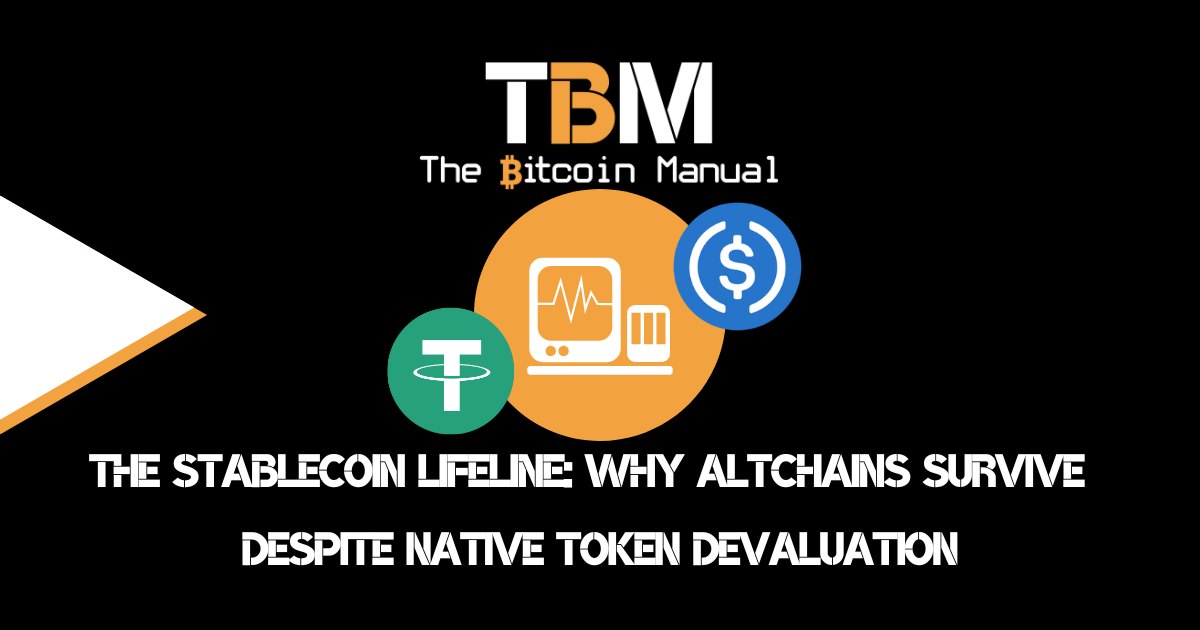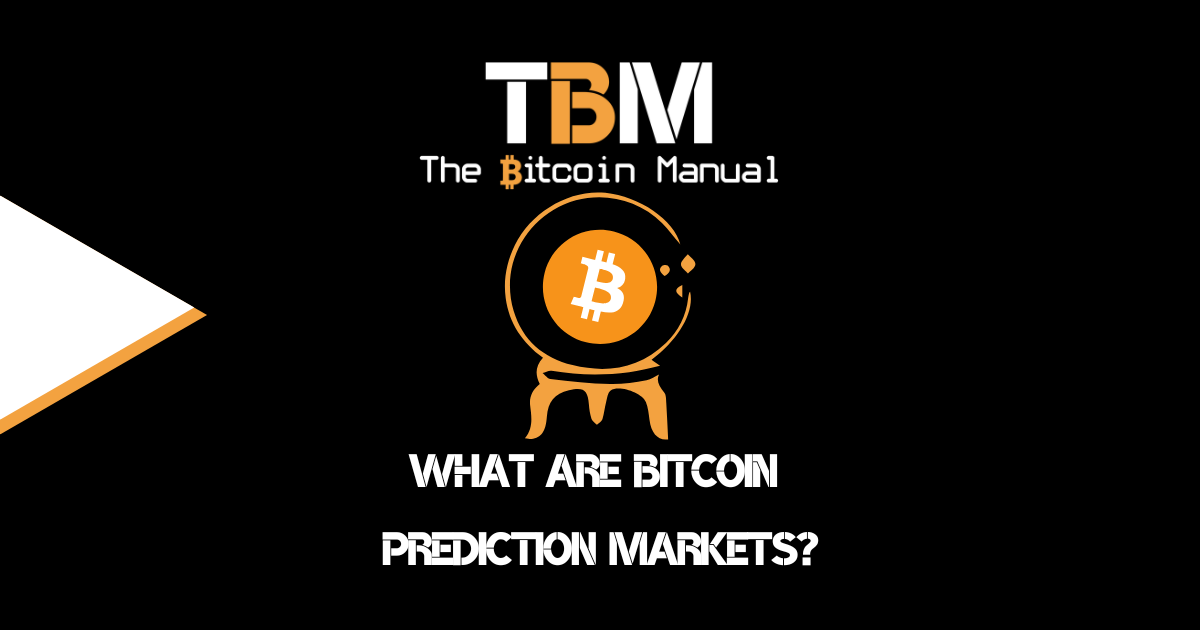Bitcoins‘ introduction on the world stage has started the reshape the way we view money, as we now have a decentralised network of programmable money that has a global reach and no single entity to control it. Naturally, this would be a highly disruptive technology due to its vast improvements over the current options and in a market that is monopolised by governments.
While bitcoin continues to grow as an alternative network of value storage and global settlement, there are competing networks that have used some of the bitcoin designs and made certain trade-offs. These alternative networks base their existence on the theory that bitcoin is solely a technological play. If they can offer improvements on certain features of bitcoin, they will become a dominant network.
So far, this thesis has proved to be a failure. Every improvement and narrative around these improvements, such as cost, speed, scalability and efficiency, all come at the cost of security and decentralisation. Since these networks cannot compete with bitcoin for too long before liquidity is drawn out and back into bitcoin, they constantly have to re-invent themselves and come up with new reasons to own use their network.
We’ve heard everything from ICOs, Tokenisation, and Stablecoins to NFTs, DAOs and DEFI, and as each narrative collapses, a new one emerges. As the DEFI and NFTs start to wind down, altcoins are now desperately seeking out a new narrative to justify their existence. Now we’re hearing about a new use case or concept for NFTs, taking it to further extremes of ridiculousness with the Soulbound token.
What are Soulbound tokens?
So what are these soul-sucking tokens, and what do they do? Soulbound tokens (SBTs) are non-transferable token; it is meant to be tied to a specific wallet address and private key and represents a person’s identity on a public or private blockchain. The Soulbound token could contain a host of metadata, such as work history and any type of information that makes up a person or entity.
Soulbound tokens cannot be bought and sold and are not designed to have market value. Instead, they can be issued by individuals or by another entity to symbolise an accomplishment.
Some of the awful ideas for data capturing and tracking people as if they were an en endangered species that need protection are:
- Managing medical records
- Storing digital ID cards or memberships
- Certifying achievements, like job history or education
- Verifying attendance at an event
- Allowing people to build verifiable, digital reputations based on past actions. This could make it easier to track a user’s decentralized finance (DeFi) borrowing history and give out loans
- Introducing reputation-based voting for decentralized autonomous organization (DAO) governance models. This could also help DAOs mitigate Sybil attacks
- Using social recovery to gain access to an individual’s lost private keys
Soulbound tokens might sound like a good idea for surveillance capitalists and statists, but all they are is another building block for a push for the eventual social credit score system.
Altcoins have to assimilate or die
If “cryptocurrency” is meant to be private money, money outside the control of the state, to bank the unbanked, and to return power back to the people, why would it need or rather want to push for all this data collection.
How does this make their networks better for the users of the network?
The truth is, it doesn’t; what it does is ingratiate these networks with governments and establishments in order to remain alive. These DINO networks realise that for them to remain in operation and for those that hold large stakes to remain wealthy, they need to become subservient to the traditional banking system and forms of governance.
They need to comply with AML and KYC or risk being shut down either by liquidity providers like stablecoin issuers and exchanges or at the infrastructure level with nodes and validators all running on big tech servers that aren’t immune from sanctions or shut down.
Since these networks cannot be properly decentralised, they need to create backdoors for surveillance and control or risk ex-communication. Even if these networks didn’t capitulate at first, their competitors would, and as fate would have it, they will compete to be as regulatory compliant as possible, to stay close to the fiat monetary spigot of venture capital and traditional finance.
The CBDC choice illusion
As smart contract blockchains add Soulbound tokens they essentially signal to the market that they are set up to be CBDCs. They now offer the granular control needed to
Instead of having only a government-backed CBDC like the US dollar, you can play around with your silly little tokens as long as you have express permission from the government and other regulatory entities. It gives people the illusion of choice; you can hold your stablecoin, your USD, your meme tokens, or your utility coins, but at any second should you step out of line, we can shut you down from both the traditional banking system, and you’re so-called DEFI ecosystem.
So go ahead, feel free to own any asset you like as long as centralised bodies have the final say over if you can redeem them in the market or not, so be on your best behaviour.
While bitcoin maximalists have been warning about the motives of founders and incentive structures of these networks being corrupted, if now is not evident, then nothing is going to convince you. You should enjoy using permissioned money and have fun staying poor when you don’t agree with the latest woke narratives or tow party lines.
The downside of soul-backed tokens
So we’ve gone through the so-called use cases for Soulbound tokens, or rather the uses they want to promote, but what are the use cases they aren’t going to tell you about?
Compromised secret key
One of the benefits of a private key is that only you have signing rights to that wallet and its funds with a Soulbound token. Is that really true any longer? If a developer or administrator government can place conditions on those funds, then how is that private key of any value?
In an essence, all you have now is another custodial account with on-chain fees involved.
Data overhead and attack surface
The overall scope of Soulbound tokens is unknown, but if we consider the amount of use cases presented for these tokens, then the data overhead would be insane. Some data might be stored directly on the blockchain, but it is impossible to store all data in the chain. It would become impractical and that data would need to sit in alternative data centres and be accessed via the token.
Every data centre you set up is a potential weakness that could compromise your token and your wallet and add new attack vectors for the individual, attack vectors that I assure you will not be accounted for or compensated for should they be exploited.
Token tactics
Since Soulbound tokens are tied to a wallet and could be used to access certain services like as an authorisation method, certain locks could be placed on your wallet should you not perform certain actions. If you don’t check in with your government, for example, if you’re late in paying your speeding ticket, you could get shut out of your account.
Adding token authorisation to your wallet turns it into more of a ration card than any kind of wallet where you should have full say on how funds are deployed and accessed.
Compromised oracles
Blockchains are only databases; they are NOT arbiters of truth, especially when data that is not native to the chain is imported from external sources. To have these Soulbound tokens collect and connect data, there need to be oracle data providers that manage these external databases that are accessed by your token.
Now between the two environments, the oracle would be the easier point of attack, corruption or internal issues. Mistakes could be added to the oracle feeds by coding or human error, oracles could be taken down, oracles could be adjusted by force or coercion, and how would they be disputed?
Oracles might work for something trivial like verifying public knowledge, such as the score of a sports game. Still, when it comes to sensitive and personal information, it becomes far less practical and even turns into a profitable attack vector.
Compromised network fungibility
As soon as networks like these use the power of the Soulbound token to discriminate against certain users based on certain rules, you start to break the fungibility of the network. If I cannot spend my money on a certain purchase because I’m on a blacklist, then my coins are not fungible with the network nor with other coins of the same name and unit value.
My black-listed token cannot be swapped for a “clean” token so that I can perform the purchase because my wallet is the point of censorship. Applications might also be restricted from accepting transfers from certain flagged wallets, and this renders any public network pointless, in my opinion.
Program money, don’t program people
Bitcoin gave us programmable money, where the user can action commands based on the network’s consensus. If the commands are within the protocol parameters, no one will stop you from using your coins; that’s the power of programmable money. Once you have money that cannot be censored and stopped, you allow capital to flow towards the places it’s most valued so that it might be used to capture market inefficiencies, and that’s the beauty of programmable money and where it should stop.
As for the altcoins, they don’t want to have programmable money; they want to have programmable users that they can herd around like sheep by creating new walled gardens and funnelling them into certain economic activities centralised entities have deemed important for the network.
Cryptocurrency is still money with a single point of failure. With centralised oversight and with Soulbound tokens, their ability to drive certain mandates only increases as if it wasn’t overreaching as it is already with your standard proof of stake system.
Bitcoin will pocket the freedom premium
If Soulbound tokens do go ahead for these alternative networks, I see it as a massive win for bitcoin and an own goal for these networks. The harder governments crack down on the use of “crypto” in certain parts of the world once they have these newfound powers, the more bitcoin becomes an attractive option due to its uncensorable nature.
In bitcoin, you can now put a price on financial freedom, and that price will be reflected in the growing value of the bitcoin network and the decoupling from the altcoins as they all trend towards zero against bitcoin.
Soulbound and soulless
If, after reading my arguments, you’re still unconvinced on why you should be using the bitcoin network to store the product of your labour, then I applaud you for being willing to go down for your beliefs. You fund the world you want to see and live in and if those use cases appeal to you, go right ahead.
If not, you might want to reconsider your stance and update your investment thesis on these other tokens and their chains. Do you want to continue to play with captured casino chips, or do you want to hold truly sovereign money?
The choice is yours, NEO!

So what do you think about Soulbound tokens? Are there some salvageable use cases or is it all bad? Let us know in the comments below.




